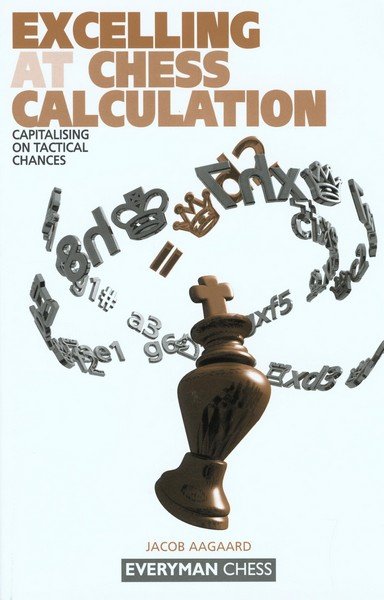Excelling at Chess Calculation - Capitalising on Tactical Chances, 2004

These days a lot of chess books are published on what I like to call 'general themes'. In most of them the author srarts out by claiming tliat there exist virtually no books on... How to think in chess; endgame strategy; this or tliat positional theme; basically whatever... (seen most recently in Paata Gaprindashvili's fabulous Imagination in Chess, Batsford 2004). Of course this is no longer quite true (though it might have been when the writers were read ing chess books themselves). I will not try to claim here, for instance, that there are no books on calculation. There are in faci several and they are all worth reading; I mention them in the bibliography and more than once elsewhere. If, after reading this book with the TV turned on, you cannot remember the titles, then perhaps you should turn off the TV and focus a bit more on chess!
In this boob I discuss the subject of how to improve one's ability at chess tactics and calculation. To me, this involves opening the mind to certain ways of dunking, and then training. For that reason I have added a tactical test to this book (to my publisher's regret, as this made the book longer than expected and delayed its delivery until right before the planned publication date). I hope that this test will encourage players to work on improving their tactical ability.
At the same time as writing this book I was also working, together with FM Esben Lund, on a CD for ChessBase, which will probably be titled Train Your Decision Making In Chess. If the current book inspires you to do more work on calculation and decision making, then the CD would be a good place to continue.
Calculation is one facet of chess ability about which most people have an opinion. Amateurs, for instance, often think that grandmasters calculate many moves ahead. Grandmasters do have this ability, but it is not the primary difference between them and the average club player. Rather, there is a degree of accuracy, visualisation and organisation in a grandmaster's calculation, which together with his overall greater knowledge of chess makes him superior to the amateur. One aspect of this is greater imagination, to which I have devoted quite a bit of space in this book.
Here is one of my favourite moves of all time. No amateur (without some kind of training), I think, could ever have decided upon this move in a tournament game.
Author: Aagaard Jacob
Title: "Excelling at Chess Calculation"
Released: 2004
Format: djvu
Quality: good
Number of pages: 193
Size: 6 Mb
Comment 0